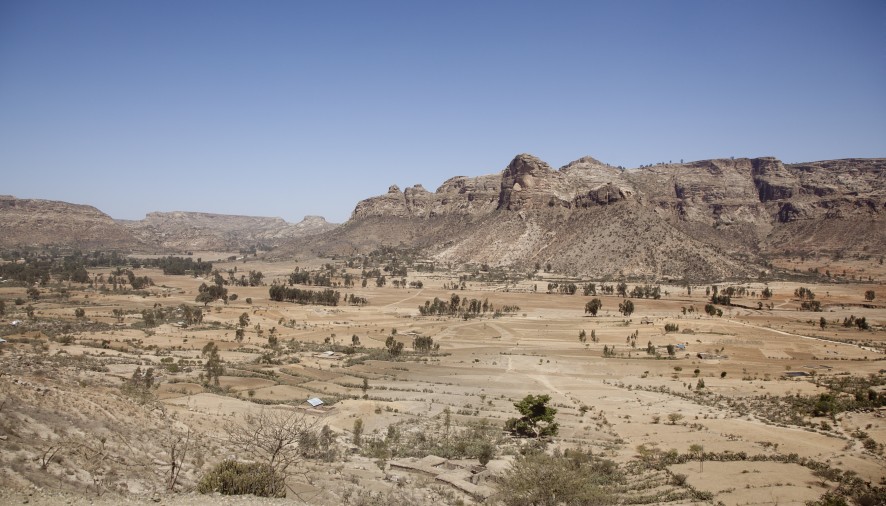Climate change is one of the factors that is shaping this world and can still have many unrealised effects on the planet, resulting in more widespread impact in human lives than originally thought. The effect of climate change in already volatile areas such as the Middle East and in countries such as Syria, can exacerbate the affect that terrorism has in causing conflict. Climate change allows a higher frequency of damaging events such as famine to take place, leading to more stress in that area.
One example of these stresses was in the period of 2006-2010 when consecutive droughts in the Middle East meant that affected countries were put under pressure. As a result, there was a gap in governance on issues of climate change which may have allowed ISIS to gain a foothold as people became increasingly unhappy in the way their country was being managed in the face of extreme climate. The drought temperatures were mirrored with that of the global warming temperatures in the region and corresponded with the Syrian civil war. This has led to speculation whether the climate change is directly related to a growth in terrorism. Of course, climate change has played an indirect role in ISIS but it could have been the additional factor which sparked others such as a lack of democracy or widespread corruption to come to a head.
Other regions were affected during the drought between 2007-2008, such as Iraq, Jordan and Lebanon but only Syria was affected with the large scale migration that came from the humanitarian crisis. Syria has a semi-arid climate which is conducive with droughts and indeed 25 years of the period of 1961-2009 were drought years. The human mismanagement of resources in these difficult conditions means that the Syrian government itself can be held accountable and is one of the largest factors leading to the civil war. The Assad regime had several failings, not least the water and agricultural policies, which climate change may have increased the effects of.
Politicians also affect the way the public perceive the link between climate change and terrorism. For example, the US administration could overstate the impact that the environment had in shaping ISIS in order to gain their environmental agenda. In contrast, the Republicans believe that climate change had little or no role in shaping terrorism. Terrorism generally seems to be short term with regards to the immediate threat of the climate change whereas it clearly has the potential to affect global populations but is considered more of a long term problem. The security risks associated with climate change can be seen in a Pentagon report published in 2015 which states that the continuing effects of climate change will aggravate problems such as social tensions, poverty, the stability of weak political governments and environmental degradation.
In the future, although some countries will see a decrease in precipitation, others will see an increase and become less water-stressed. This may lead to an increase in unrest in Syria but the models that have been simulated suggest that this water will be displaced elsewhere, making it less likely for terrorist actions or civil war to occur due to water stress in nations like Brazil, Mauritania, and Burkina Faso. The future will see an increase in harsher, more frequent droughts but this is based purely on modelling so is lacking sufficient evidence to come to a conclusion regarding the impact that climate change will have on unrest in nations in the future.
Climate change will continue to pose a problem in the future with an average global temperature increase of 5ºC. This increase in temperature will not only ensure sea level rise but also would affect agriculture and lead to more extreme storms. These factors ensure that people become more desperate and more willing to go against their government as they have nothing to lose. These people are therefore more easily recruited into the Jihadism movement as it provides a living independent of climate.
Climate change may not be responsible for the rise of terrorism but it certainly plays a role in worsening the conditions in a fragile area, which can lead to extremism taking hold. Where there is more water shortages, changing weather patterns and rising sea levels could be more politically unstable. However, due to debates taking place between decision makers, it is unlikely that more legislation will come through in regard to climate change as a result of fear of rising terrorism.
Kira Knowles
Image courtesy of Trocalre, image hosted on Flickr.

